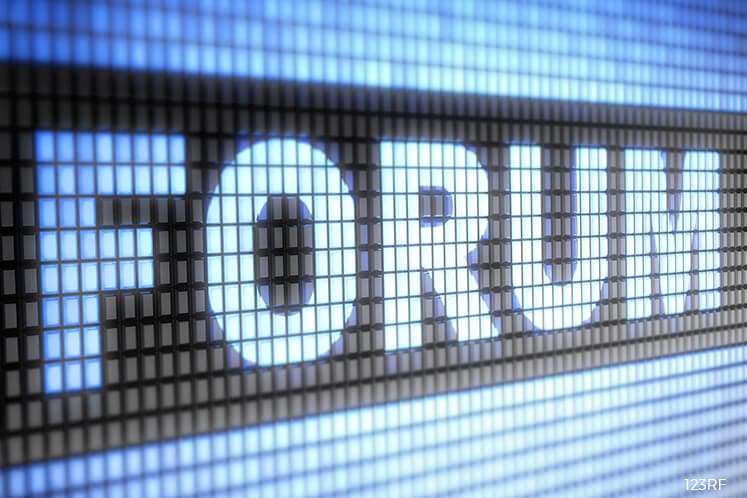
This article first appeared in Forum, The Edge Malaysia Weekly on June 19, 2017 - June 25, 2017
The history books will quite certainly record US President Donald Trump’s withdrawal from the Paris climate accord as one of the most significant missteps of the reversionary leader’s term of office.
It could well count as the tipping point for the decline of American prestige in world affairs in the current era.
As starkly shown by the global antagonism that greeted Trump’s announcement on June 1, the US’ reneging on the United Nations climate deal of 2015 has dramatically eroded its credibility as a responsible member of the international community, not to mention its clout as a superpower.
Tellingly, youth groups accused Trump of jeopardising their future, reported The Observer, a UK newspaper.
So contrarian is Trump’s action that it made the world’s largest economy one of only three nations, besides Syria and Nicaragua, that are not in the agreement.
In contrast to Trump’s lack of sensibility about the need for global buy-in on climate action, world leaders responded almost in unison and with remarkable clarity on the import of the US’ move.
An especially poignant comment was made by Japan’s environment minister, Koichi Yamamoto, whom The Observer quoted as saying: “It’s as if they’ve turned their back on the wisdom of humanity … In addition to being disappointed, I’m also angry.”
But perhaps the biggest of ironies is that Trump’s apparent gain for US interests comes at the expense of the opportunity to leverage the clean energy revolution.
This advantage now passes to the European Union and China, the second and third largest economies, which announced at a summit in Brussels on June 2 that they were determined to work together with all stakeholders to lead the energy transition to a low-carbon economy.
In fact, Trump’s move may have galvanised more concerted action towards clean energy as the risks posed by the White House’s regressive example highlights the dangers that would arise from a derailed Paris accord.
The symbolism of Apple Inc’s US$1 billion green bond offering to finance clean energy and environmental projects, the first since Trump’s announcement, has not been lost on observers. The issuance comes on the heels of the US$1.5 billion green bond that the iPhone maker sold last year, which was billed as the biggest in US corporate history.
In other news, California is considering a proposal to provide hundreds of millions of dollars to an energy research and development fund, even as the Trump administration aims to slash federal funding and roll back regulations on clean energy, the MIT Technology Review has reported.
These measures underline the growing momentum towards clean energy in the US and around the world that have allowed renewable energy resources to shed the “alternative” label and transition into the mainstream energy industry, Deloitte said in its US Renewable Energy Industry Outlook 2017 report.
Moreover, as an ABC report notes, American industry is investing “like there is no tomorrow” in energy-efficient semiconductors, cleaner power generation, batteries and electric cars.
Some US$120 billion is being ploughed into green technologies via corporate investments, private equity and venture capital, Bloomberg reports, quoting Moody’s data.
The upshot of all this investment in green businesses is that the opportunities which are opening up for US businesses are too significant for Trump’s miscalculation to interrupt.
As ABC’s Greg Jennet sees it: “Whether it is Boeing or Chevrolet’s pursuit of cleaner, quieter engines, Carrier’s invention of more efficient air conditioning or the construction of large lithium-ion battery centres springing up throughout California, there is too much at stake for American industry to turn back on securing some of the roughly US$1.4 trillion global spend on clean energy products.”
A further irony is that almost half of Trump’s supporters are in favour of the US taking part in the Paris agreement (47% for, 28% against, 25% don’t know), according to a recent poll by Yale University quoted by the ABC.
The same poll found majority support for the Paris pact among the general voting population in every US state, the report states.
Seven in 10 registered voters (69%) who were polled said the US should participate in the agreement, compared with only 13% who said the US should not.
Besides posing questions about which constituents are being served by Trump’s climate move, it reveals the epic costs of making decisions based on a nostalgia for lost glory.
Not only does such an outlook trap us in an unproductive quest to recreate the past, it blinds us to the freedom to develop in wholesome new ways with the possibilities that are emerging in the evolving future.
In the field of renewable energy, for example, the improving economics of solar photovoltaic generation and wind power are driving people to seek greater control over their energy choices, the Deloitte forecast says.
As a result, a movement towards localised energy procurement appears to be underway. Consumer demand for grid-tied, but customer-owned, solar and storage systems is growing as a range of options for renewable energy resources is coming onto the market.
With consumer demand fuelling the increasing emphasis on corporate social and environmental responsibility, coupled with the dizzying growth of investments in green technologies, it may not be too long before regressive approaches to the climate change issue held by the likes of Trump become politically toxic.
In the meantime, the global community can take comfort in the solidarity that the major signatories to the Paris agreement have shown in putting the well-being of the planet before the myopic interests of a few.
That message was aptly conveyed by French President Emmanuel Macron in a televised reaction to Trump’s announcement: “Don’t be mistaken on climate: there is no plan B because there is no planet B.”
R B Bhattacharjee is associate editor at The Edge Malaysia
Save by subscribing to us for your print and/or digital copy.
P/S: The Edge is also available on Apple's AppStore and Androids' Google Play.